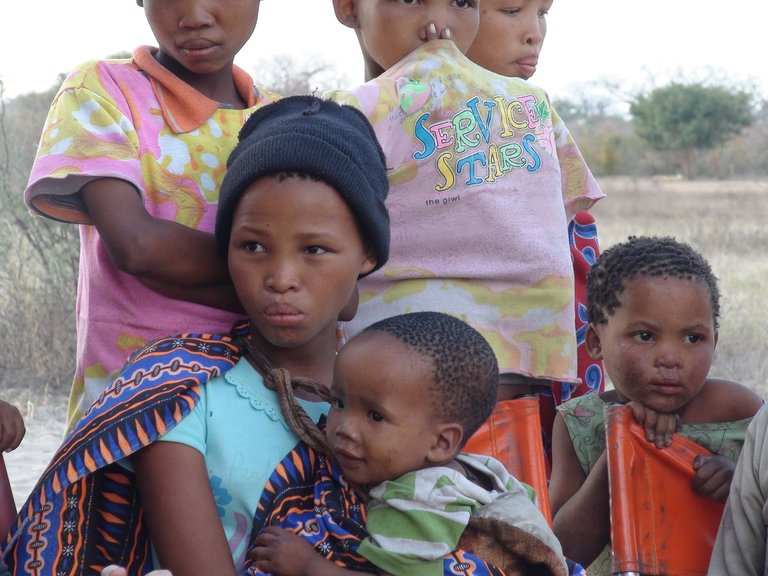Infertility is still a big deal in Africa despite her estimated teeming population of about 1.37 billions people which is 17.4 % of the world population as of 2021.
Infertility has been defined as failure to conceive after exposure to pregnancy risks for over a year without a known reproductive pathology.
In today's blog, I discuss the social plights of infertility for an African family particularly for the woman. Let us get right into it.
The cultural bias against infertility
In Africa, there is a high premium on children, and as such to die childless is often looked upon by many tribes in Africa as to die unfulfilled or worst still as an abomination.
That this is so is not far-fetched. A consideration of some of the most common names that is given to many African children reflect the premium that Africans accord to children.
Here are examples of some common Yoruba names and their meaning:
"Omogholahan" which means my child showcase my wealth.
"Olamide" meaning my wealth has arrived.
"Omogbemi" which means my child will support me.
What is true of the Yorubas, is also true of the Igbos. Here are examples of Igbo names and their meanings buttressing how entrenched this ideology is among Africans:
"Nwakaego" literally means a child is worth more than money.
"Nwabueze" which means a child is better
"Nwakonam" which means may I not lack a child.
By the way, the names above are only a few examples out of the many possible names of these type. And it must also be remembered that I have only made mention of just two tribes among thousands.
Africans treasure children because they believe that children is the reward of marriage, as children, particularly the male child is seen as the heir that will perpetuate the family name.
For this reason, male children are treasured above female by many Africans even among the educated elites. Again, many people lack social security or life insurance in Africa and children are seen as a form social security against old age.
The consequences of cultural bias against infertility
The above points explain why it is socially unacceptable in the Africa culture to be infertile. This social bias against infertility put a lot of stress on African marriages.
Marriage is globally recognized as a matrimonial union between two people who are generally and traditionally of opposite sex. Although both male and female in a marital relationship suffer the stigmatization resulting from infertility in many Africa culture, the woman is sure to bear the greatest brunt of this cultural bias.
It is culturally assumed by many in Africa that the woman is the one suffering from infertility whenever a couple is childless. In fact, the unenlightened Africa woman has been programmed by culture to take the blame of childlessness in a marital relationship.
If a year elapse before a married couple procreate, it is sure that they will start experiencing subtle pressure from their family and friends. And if more years elapses, it becomes a source of embarrassment for the family, particularly the woman, in almost all their social circles.
For example, over a year ago in Nigeria, the fact that the wife of a governorship aspirant was childless was used to campaign against the aspiring governorship candidate by the major opposition party. This generated a lot of public outcry among the educated populace who condemned the recklessness of the opposition party in clear terms.
The nature and intensity of embarrassment suffer by a childless couple depend on the disposition of the in-laws to some extend. If the in-laws are troublesome, the woman is pulled in different directions. She may be nicknamed "a man" implying that she cannot conceive. She could be accused of being a prostitute who has possibly performed many abortions or whose womb has been damaged by pills before she married.
This is only one side of the equation. The other side is that if a woman did not give birth to a male child, she has not escaped this cultural prejudice regardless of the number of female children she may have.
There is a saying among the Yorubas to this effect. Literally rendered, it goes something like this: "The woman who is a witch cannot do better than give birth to female children !"
Among the Igbos, a woman who is able to give birth to many children is honored with a chieftaincy title in recognition of her contributions to the community!
The burial ceremony of a man with many children in some African tribes is often very elaborate and one that is highly desired by many aged people unlike what their counterpart with few children or no child experience.
Some of the fall out of this cultural bias against infertility include the following:
Unfaithfulness in marriage: Some marriage partners in a bid to have a child and escape the social stigma of barrenness, become unfaithful to their partner.
This is may lead to the dissolution of the marriage if discovered. The man is usually the one who is guilty of unfaithfulness in most cases since it is culturally assumed that the problem is always with the woman.
Unwholesome marital practices: Sometimes when it is scientifically proven that the woman is unable to conceive, she may "arrange" for another woman for her husband in order that she may give birth to children on her behalf.
Unwholesome management of infertility: Driven by societal pressure, many couples including the educated, seek the help of spiritualists and traditional healers in an effort to manage infertility. This has led to the ingestion of unhealthy substances meant to cure infertility by many. The hospital is the last resort for many because they preferred to keep the knowledge of their infertility secret,
Conquering the cultural bias against infertility
Education remain the only tool that can be used to conquer the cultural bias against infertility in Africa society. Therefore, health education curriculum should address this social anomaly.
Reference
Infertility in Sub-Saharan Africa: A Woman’s Issue for How Long? A Qualitative Review of Literature


What women without children go through in this part of the world is really sad and unfair. Gladly, the cases of adoption and surrogacy is becoming more acceptable these days.
I understand how you feel. Thanks for stopping by
Congratulations @saintgentle! You have completed the following achievement on the Hive blockchain and have been rewarded with new badge(s):
Your next target is to reach 50 posts.
You can view your badges on your board and compare yourself to others in the Ranking
If you no longer want to receive notifications, reply to this comment with the word
STOPTo support your work, I also upvoted your post!
Check out the last post from @hivebuzz:
Support the HiveBuzz project. Vote for our proposal!
Thanks for your contribution to the STEMsocial community. Feel free to join us on discord to get to know the rest of us!
Please consider delegating to the @stemsocial account (85% of the curation rewards are returned).
You may also include @stemsocial as a beneficiary of the rewards of this post to get a stronger support.
The believe is fading out gradually, moreover, more awareness like this should be spread to en light the populace who still has firm believe in attributing infertility to the women only. Thanks for the treatise!
Thank you for stopping by sir
I think it's reasonable to assume that people who did not have a bias against infertility did not leave as many progeny behind, so it makes biological sense.
The idea however that it's always the woman's fault is just flat out wrong.
The stigmatization of people who are infertile also destroy families which is counterproductive.
I agree with you on this.
Depends on what you mean by 'destroys families'. My argument was that this 'cultural instinct' exists because it creates families: the people who can't have a child will split up and find better child-bearing luck elsewhere. I knew a couple who was together for many years and they couldn't have a child. They split up (for reasons unrelated to children), and got new partners, and both of them immediately had children! Apparently some people are not compatible in that sense. Maybe someone could write an article about that!
I'm against stigmatization of course, but my argument is that, biologically, it can be beneficial, even if it's hurtful psychologically.
I get your point. Thanks for stopping by and please pardon my late response. I have been away for awhile.